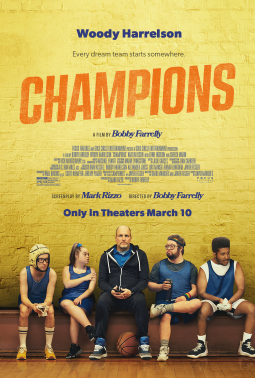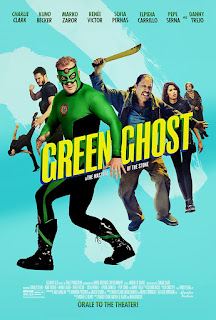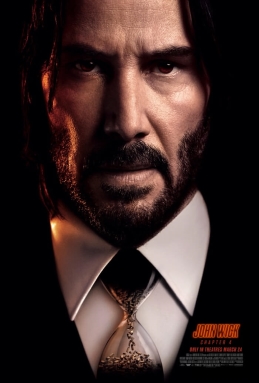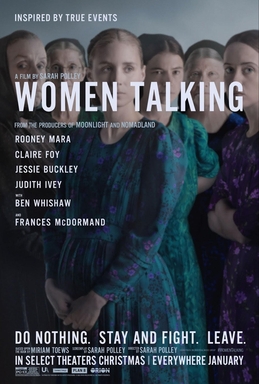ANGELS IN THE OUTFIELD
Welcome to Rick's Texan Reviews' Annual Opening Day Film, where I review a baseball-related film to coincide with the AAA Minor League Opening Day for the El Paso Chihuahuas. This year, I look at the original version of a well-loved film.
I imagine that if you mentioned the film Angels in the Outfield, most would think of the 1994 film. Few people are aware that the 1994 film is actually a remake. The original version of Angels in the Outfield is a sweet comedy anchored by strong performances, though a subplot does stretch credulity.
Cantankerous, foul-mouthed Pittsburgh Pirates manager Guffy McGovern (Paul Douglas) is tearing into everyone that comes in contact with him. It's no surprise: the Pirates are falling behind for the pennant race. Helpful hints newspaper columnist Jennifer Paige (Janet Leigh) is assigned to cover the Pirates and McGovern to get a woman's perspective. Said perspective is a sharply negative one, and she makes it perfectly clear in the newspaper.
One night, while searching for his lucky charm, he hears the voice of an angel who tells him someone has been praying for him and the Pirates. The archangel Michael has taken a personal interest in this case, and this guardian angel is unhappy about his assignment. He cuts a deal with Guffy: if he cuts out the swearing and bullying, the angel will get the Heavenly Choir Nine (angels who may have been former baseball players themselves when alive) to help the Pirates win.
With a lot of struggles, Guffy keeps his word. To his surprise, the Pirates soon start advancing. Unfortunately for him, a little orphan girl named Bridget (Donna Corcoran) can clearly see the Heavenly Choir Nine and tells everyone she sees. Sister Edwina (Spring Byington), the Mother Superior of her orphanage, does not believe Bridget but does not dismiss her ideas either. Guffy soon takes a liking to both Bridget and Jennifer. However, Guffy is pursued by Fred Bayles (Keenan Wynn), a reporter with a long rivalry with Guffy. Will Guffy be able to keep his pledge to the angel as the pennant race heats up? Will this cranky man find true joy not in victory but in life?
Angels in the Outfield is cleverly ambiguous about the angels themselves. We get hints that they are former players, but it is never flat-out stated that they are. The unseen angel at one point tells Guffy that there are many ballplayers in Heaven, but few managers (a nice witty line from screenwriters Dorothy Kingsley and George Wells). We do not see the team make their miracle plays. At the end, as Guffy looks onto the field with Jennifer and Bridget with them, he speaks out a list of baseball greats that were all dead by the time Angels in the Outfield premiered.
Walter Johnson. Christy Mathewson. John McGraw. Lou Gehrig. Babe Ruth. Eddie Collins (who had died a few months prior). Why Guffy spoke these particular names is open to interpretation. He could have merely been reciting a list of baseball giants. He could also have finally seen the players that only Bridget could see prior to the end of the film (and whom more than likely she would not have recognized). Mathewson was known as "the Christian Gentleman", so him being an angel is highly likely. Ruth would not be seen as an angel, but given he was among the greats, who would exclude him from a heavenly lineup?
Angels in the Outfield also has cameos from Joe DiMaggio, Pirates part-owner Bing Crosby and even Ty Cobb, all of whom add nice quips about whether angels were helping the Pirates.
As Angels in the Outfield is a comedy, we do not take things seriously. It does not take away from the performances, which are universally delightful. Douglas is excellent as Guffy, this cranky, boorish man who slowly evolves into a genuinely caring individual. His vulgar language is covered up with gibberish, in keeping with the limitations of the time. You do get hints that Guffy is not all bad (he keeps a parrot that he's fond of). The film lets the evolution of the character grow. Of particular note is when in his halting manner, Guffy inquires about Bridget.
At first he wants to know what Bridget knows, but as the scene goes on, we see Guffy's softening. By the end of the scene, we see that Guffy's heart has been genuinely moved, more so when he sees that Bridget is the one who has been praying for him and the Pirates. Attempting to hide his face from the Mother Superior when asking about Bridget's future, we see thanks to Douglas' performance that Guffy is a genuinely changed man.
Guffy is not completely reformed: he still uses curious phrases such as when he tells reporters, "Sure, you want to find out if I'm wacky". It keeps to his character, and by the end of the film we genuinely like this gruff but loveable man.
Leigh is charming as Jennifer, able to stand up to Guffy but also finding him a curious being. The suggestion of romance between them is laughable, but they played it well. They never flat-out stated they were in love, but the characters did not reject the notion that perhaps in the future they could be romantically involved.
Corcoran is delightful and endearing as Bridget. The film does have a bit of Miracle on 34th Street to it: the little girl who believes the supernatural, with the adults not keen on the idea yet befuddled when it is the only logical explanation.
Angels in the Outfield wants nothing more than to entertain and charm. It succeeds very well, and while the remake may have eclipsed the original, the first version is worth giving it a look-over.
2022 Opening Day Film: Bull Durham
2021 Opening Day Film: Alibi Ike
2020 Opening Day Film: Mr. 3000
2019 Opening Day Film: Ladies' Day
2018 Opening Day Film: Fear Strikes Out
2017 Opening Day Film: Eight Men Out












_Main_Poster.png)







